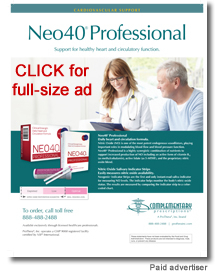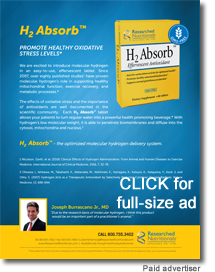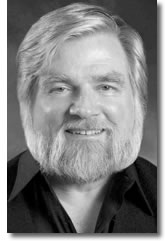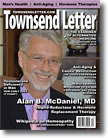|
"The sky is falling, the sky is falling," shrieked the fabled Chicken Little, hoping to arouse the casual crowd of other animals, warning them that "the end is near." Not surprisingly, most of them reacted not at all, just like the townsfolk who heard once too often the false alarm from the frightened boy who "cried wolf" so many times that his warning was easily ignored.
Leading conventional physicians who have little or no exposure to increasingly popular "alternative/integrative/complementary" approaches have no idea that their sky is, indeed, about to crash down upon their heads. Like ostriches who have buried their heads deeply in the sand, they are about to be blindsided by a groundswell of healing technologies ever more readily embraced by patients desperate to find results, not just more drugs and more surgery.
 Enter: "Re-examining the Oath: Reversing Iatrogenic Toxicity and Nutrient Depletion." The 61st meeting of the International College of Integrative Medicine (ICIM), held in Toronto in early September, was once again a shining jewel in the crown of advanced continuing education. The program committee chaired by Ontario family doctor Sajad Zalzala, MD, assembled a roster of speakers to correlate basic science discoveries with safe, effective, cost-conscious, and natural treatment programs that are resolving "untreatable" problems. At least … "untreatable" by conventional approaches. [www.sajadzmd.com] Enter: "Re-examining the Oath: Reversing Iatrogenic Toxicity and Nutrient Depletion." The 61st meeting of the International College of Integrative Medicine (ICIM), held in Toronto in early September, was once again a shining jewel in the crown of advanced continuing education. The program committee chaired by Ontario family doctor Sajad Zalzala, MD, assembled a roster of speakers to correlate basic science discoveries with safe, effective, cost-conscious, and natural treatment programs that are resolving "untreatable" problems. At least … "untreatable" by conventional approaches. [www.sajadzmd.com]
Retired Ontario surgeon and weekly columnist W. Gifford Jones, MD, 93-year-old author of 90+ How I Got There, delightfully shared clinical pearls from a lifetime of exceptional practice. His take-home message: the author of eight other books insists that cholesterol is not "the evil," but extra weight (from sugars and starches) and sedentary lifestyle, along with nutritional deficiencies (especially vitamin C and lysine, a là Linus Pauling) and environmental toxic exposures, are key contributors to heart disease. [www.docgiff.com]
The burgeoning problem of prescription drug-associated nutritional deficiencies, especially those provoked by drugs for cardiovascular disease, was outlined by Ross Pelton, RPh, CCN, author of several books including Nutritional Cost of Prescription Drugs. Take-home: Many are the reasons to avoid drugs – and to take nutrient supplements. [www.naturalpharmacist.net]
Aileen Burford-Mason, PhD, author of 3 dozen journal articles, focused on correction of ubiquitous magnesium deficiency in restoring heart health and helping to resolve (or even prevent) frustrating chronic disease patterns. Take-home: The author of Eat Well, Age Better documents that we will live (or die!) by our dietary choices. [www.aileenburfordmason.ca]
Virginia rheumatologist Leila H. Zackrison, MD, addressed shortcomings of the standard of care of autoimmune "diseases." The modern "-umab" and "chemo"-type drugs have serious limitations. Take-home: nutritional support can be critical in resolving immune-system, inflammatory/oxidative stress, and pain-producing disorders. [LHZ@ohdDrZ.com; www.optimalhealthdimensions.com]
Medical director of physiatry clinics at Sunnybrook/University of Toronto and Executive Director of the Canadian Association for Orthopaedic Medicine Gordon Ko, MD, shared perspectives on chronic pain/autoimmune disease treatments. Changes in state laws have encouraged more experimentation into cannabinoids (medical CB2, not recreational CB1 marijuana) in a wide variety of disorders. Take-home: sugar in diet, and other food triggers, are pro-inflammatory, while CB2 receptors modulate immune system performance. [www.drkoprp. com]
Long an activist for intelligent prescribing is Wisconsin pharmacist and nutritional practitioner Carol Petersen, RPh, CNP, cohost of the weekly radio show Take Charge of Your Health on WBAI radio in New York City. She gave a splendid review of the history of opioid pain relievers and their many problems, specifically at the cellular level. Take-home: The factors in prescribing pain medications or not are complicated and require a whole-person perspective. [www.womensinternational.com]
Nationally recognized Ohio specialist in the treatment of myofascial pain, Hal Blatman, MD, past president of the American Holistic Medical Association, reviewed nutritional aspects of patient-centered pain management, with minimal medications and adverse effects. Avoiding and reducing toxic exposures is central. Take-home: A comprehensive diet/nutritional-based personalized program can help each patient in ways unachievable by the usual drug-surgery practitioner. [Author of The Art of Body Maintenance: Winners' Guide to Pain Relief (2006), Fibromyalgia Advocate (1999). www.blatmanhealthandwellness.com]
Canadian expert in natural medicine Kate Rhéaume-Bleue, ND, enlightened attendees on the calcium paradox – it leaves the bones where it belongs, it settles in the arteries (and elsewhere) where it doesn't. Vitamin K2, very often deficient, activates the several proteins that reduce abnormal deposition … even plaque rupture. Other systems similarly suffer. Take-home: Statin drugs inhibit the synthesis of K2, aggravating arterial stiffness and heart failure – how is that a good idea? [Author of Vitamin K2 and the Calcium Paradox. www.doctorkatend.com]
 World famous epidemiologist and inaugural dean of the University of Toronto's Dalla Lana School of Public Health, Howard Hu, MD, MPH, ScD, brilliantly wove the interrelationships of environmental toxicants, especially relating bone lead levels (K-X-ray fluorescence, a research procedure at present). Concordance studies show a powerful influence of gene-environment interactions in the development of lower childhood IQ, autism, breast cancers, Alzheimer's, schizophrenia, osteoporosis, hypertension, cardiovascular diseases. Take-home: evidence shows adverse impact of heavy metals on early development and later chronic disease. [howard.hu@utoronto.ca; dean.dlsph@utoronto.ca] World famous epidemiologist and inaugural dean of the University of Toronto's Dalla Lana School of Public Health, Howard Hu, MD, MPH, ScD, brilliantly wove the interrelationships of environmental toxicants, especially relating bone lead levels (K-X-ray fluorescence, a research procedure at present). Concordance studies show a powerful influence of gene-environment interactions in the development of lower childhood IQ, autism, breast cancers, Alzheimer's, schizophrenia, osteoporosis, hypertension, cardiovascular diseases. Take-home: evidence shows adverse impact of heavy metals on early development and later chronic disease. [howard.hu@utoronto.ca; dean.dlsph@utoronto.ca]
Internist Joe Hickey, MD, presented his clinical research and observations on the critical contribution of lead body burden to complex medical cases – and the ease with which an appropriate chelation therapy program can turn around apparently hopeless situations. Take-home: Complicated patients often have toxic heavy metals … to complicate their other illness patterns. [www.drjosephhickey.com]
Dr. Hickey continued with a valuable review of severe pathological changes associated with gadolinium exposure – the contrast material used in MRI examinations. (200 million MRIs have been performed in the US – and later MRIs without contrast have been shown to "light up" brain tissue due to lingering contrast). Studies suggest that stem cells, when exposed to gadolinium, "freak out" and convert into fibroblasts. Subsequent tissue changes are easy to understand: your skin, your kidneys, and other tissues become scarified. Nephrogenic system fibrosis (NSF) is a diagnosis that is often missed but should be considered in patients suddenly making clinical changes within days or months after recent MRI studies with contrast. Take home: Gadolinium deposition involves intensive fibrotic progressive changes … unless prompt chelation treatments are employed. Better compounds are Ca-DTPA followed by Zn-DTPA (difficult to acquire), which relieve symptoms earlier than usual EDTA. [The Lighthouse Project: www.gadoliniumtoxicity.com]
Chief Medical Officer and Professor at the Canadian College of Naturopathic Medicine Jonathan E. Prousky, ND, MSc, MA – winner of the Townsend Letter Best of Naturopathic Medicine article competition, and editor of the Journal of Orthomolecular Medicine – shared the back-story truth about psychiatric drugs. What about a higher chance of suicide within the first many days of starting antidepressant drugs? Or dependency that arises so that patients are kept on the drugs only because of habituation? Take-home: Psychiatric medications are xenobiotics that induce abnormal brain states and unpredictable mental states. [www.jonathanprouskynd.com]
The holistic psychiatric treatment model of Michael J. Gurevich, MD, was presented by a clinic associate, Tia Trivisonno, ND. The dramatic increase in chronic medical illnesses has been noted as well in most psychiatric conditions. Can Lyme disease cause bipolar disorder? Or could other parasites or even psychiatric drugs unintentionally be at the root? Take-home: Restoring health and productivity through the holistic model is like peeling the layers of an onion to remove the obstacles and address identified problems in an integrative format. [tiatrivisonno@gmail.com; www.holisticmd.org]
Internationally acclaimed specialist in thyroid and other hormonal disorders David Brownstein, MD, offered his perspectives on achieving better health with appropriate replacement – and avoiding side effects with xenosteroidal (mimicking) compounds. Progestins (chemical drugs often given) have almost exactly the opposite effects of (anti-inflammatory) natural bioidentical progesterone. Combined natural hormones in physiologic doses are most effective; and monitor them with appropriate tests and clinical evaluation. Declines in testosterone are associated with increases in coronary heart disease mortality risks. Declines in DHEA-S levels are similarly dangerous and dramatically increase diabetes mellitus risks. Statin drugs lower the levels of (protective) levels of testosterone. Take-home: Healthier levels of hormones are … healthier. [Author of several books; www.drbrownstein.com]
A special treat was provided by master herbalist Guy Chamberland, MSc, PhD, who cautioned that practitioners need to recognize that OTC (over-the-counter) medications can have disturbing drug–drug or drug–supplement interactions. Surprisingly, the few studies that have been done – pain relievers, cough suppressants, antihistamines, anxiolytics, antidepressants, others – usually show that natural / herbal products have similar or even superior (and safer) clinical results to OTC drugs. Take-home: confusing presentations might become simpler when a detailed drug history is taken. [www.guy-chamberland-master-herbalist.com]
Chicago-based administrative law specialist John J. Richardson, JD, and ICIM general counsel and associate of our retired counsel of many years Al Augustine presented a practitioner legal update with incisive advice on documenting "informed consent," among other topics. Take-home: you can't be too careful in doing it right.
A challenging talk was offered by internist Catherine Thomasson, MD, executive director of Physicians for Social Responsibility: will failure to reduce toxic fossil fuels be critical to our survival? [www.psr.org; cthomasson@psr.org]
The potential health effects of water contamination by deep production methods of oil ("fracking") were presented by Ohio family practitioner Deborah R. Cowden, MD.
"Healing the Land" as a stratagem to save ourselves and save the planet was reviewed by Minnesota family practitioner Jeff Kotulski, MS, DO, incorporating detoxification and optimum fitness on a personal level. [www.bridgeshealingcenters.com]
Toronto lead-in conferences featured Understanding and Unlocking Chronic Pain by Hal Blatman, MD, emphasizing the fascia component of pain patterns, and the Indispensible Tool of Infrared Thermography was reviewed by Alexander Mostovoy, HD, HDMS, BCCT.
In recognition of the impact of Sept. 11 on our lives, our final meeting day was introduced by melodic harp and guitar/vocal performances by Toronto music therapist Catherine Manning.
Our meeting was punctuated by a gala supper honoring longtime member Pennsylvania family practitioner/ integrative medicine specialist Conrad G. Maulfair Jr., DO, our 2016 recipient of the Distinguished Lifetime Achievement Award. A fellow of the American College for Advancement in Medicine, he has held leadership positions in our medical organizations for decades. Among his many contributions, recent education efforts include frequent podcasts introducing health-recovery methods in an easily understandable way. [www.DrMaulfair.com; www.maulfairmedicalcenter.com]
You're invited! The next ICIM meeting, "The Roots of Toxicity," will recognize the unexpected contribution of dental and mouth health to overall body well-being: a blockbuster cohosted with two mercury-opposing groups of dental professionals, IABDM (International Academy of Biological Dentistry and Medicine; www.iabdm.org) and IAOMT (International Academy of Oral Metal Toxicology; www.iaomt.org), along with the American Academy of Environmental Medicine, AAEM (www.aaem.org). ICIM will present the lead-in session on chelation therapy to remove toxic heavy metals and improve problems in many organs. Block your calendar now for March 2–4, 2017, at the Savannah Hyatt Regency Hotel and get registered for the meeting. Questions? Contact ICIM Executive Director Wendy Chappell-Dick at wendy@icimed.com or 419-303-9769.


John Parks Trowbridge, MD, is an occasional contributor to the Townsend Letter. He has served as president of ICIM and as first physician president of IABDM. Author of Bantam's bestselling book The Yeast Syndrome, he has been recognized in over 5 dozen volumes of Who's Who, as a fellow of the American College for Advancement in Medicine, and as 2014 recipient of the Distinguished Lifetime Achievement Award of ICIM. His next book, Top 5 Reasons To Ditch Your Heart Doctor, is coming in early 2017. Dr. Trowbridge sees patients at his Houston, Texas, suburban office: 800-FIX-PAIN, www.healthCHOICESnow.com.
|
![]()
![]()
![]()







